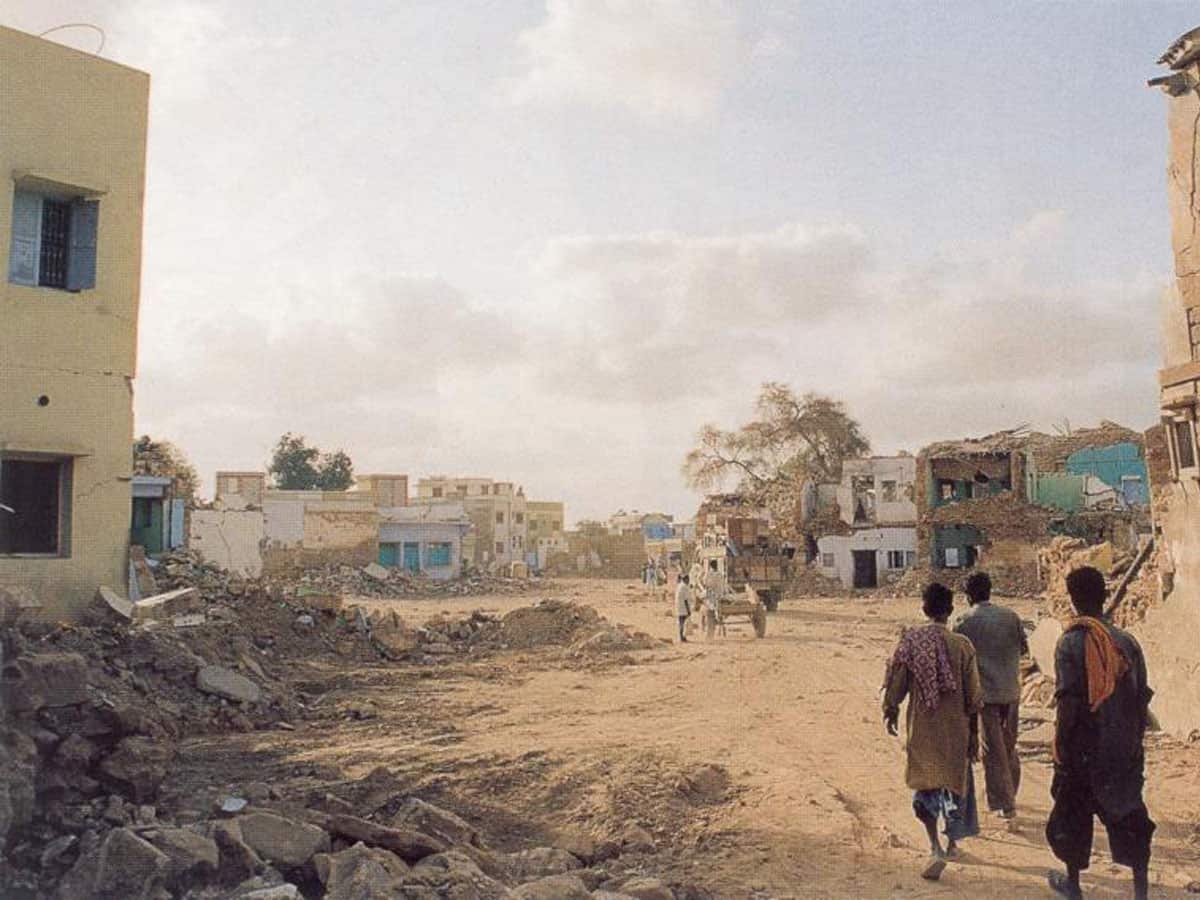January 26, 2001, the fateful Friday was destined to be a Republic Day with a difference. I had arrived in Bhuj a day earlier to see a childhood friend with whom I had parted company after schooling in an industrial township (where our fathers were posted in early 1970s). Being a journalist, I was there as if by an appointment with a catastrophe whose memories would remain etched in my mind’s notebook lifelong.
It was 8:46 am as we gave finishing touches to our breakfast. A light jerk heralded the quake. Though it did not escape anyone’s notice, the entire household preferred to ignore it. Soon the ceiling fan swung wildly to a side; doors and windows began to shiver; and, utensils tumbled off the shelves. There was no mistaking now. It was an earthquake. Shrieks of subterranean tectonic plates were growing in ferocity by seconds. Someone out in the street shouted ‘Dhartikamp’ (‘Earthquake’ in Gujarati). We ran to the balcony to figure out the magnitude of the pandemonium. People were streaming out, screaming, pressing concussions on their heads and limbs.
Violent spasms were tearing out the handrails from the staircase we climbed down. Frenzied faces were gathering in the Bhir Chowk (literally ‘Crowded Chowk). Tremors were rising in intensity and buildings were dancing to their tunes and collapsing into a heap. Pillars were crumbling and roofs were sliding off. Dust kicked up by the falling rubble had masked the sky for the viewers from the unsteady ground. Warehouse of Hasmukh Patel storing the combustible mix of ghee and matchstick boxes was in flames. The town was fast turning into a graveyard. Raining rubble sealed the narrow labyrinthine streets. Donkeys, horses and cattle lay trapped amid fallen rocks.
The huge dome of Sanker Shah Dargah had been tossed away into a corner. Custodian Hassan Shah was crying inconsolably beside the body of his young wife lying within the mausoleum. The tangled mass of electric poles and wires were belying hopes of an early restoration of power and communication. Bhir Chowk was choc a block with survivors rubbing shoulders with mourners. An hour later the first body had arrived. Four men had held corners of a bed-sheet that carried the mass of crushed bones and flesh to which an old man had been reduced.
Combing operations by rescue teams were unearthing more bodies. But sanity was not lost. A munificent soul had arrived with a cartload of buns and bananas to be handed over to the hungry and harried survivors. A funeral procession with improvised biers was ready to march out by afternoon.
As dusk fell, I bid adieu to my host thanking him for the hospitality, ruptured though. I was headed for Ahmadabad where an assignment awaited me the next morning. Beyond Radhanpur, 7 km on the Highway from Bhuj, the night sky was aglow with flames leaping out of cremation grounds.
Tragedy was all-pervasive. But there were festivities in three hundred and odd homes. They were celebrating the return of near and dear ones from prisons. No bail, no parole, no end of the prison term, nor even the Republic Day clemency from the head of the state! Collapsed walls of the Bhuj Central Prison had set them free. The cruel hands of nature had come as a blessing in disguise.
M A Siraj is senior journalist based in Bengaluru. He writes for several publications in the country.

